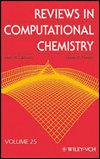Brittle Fracture: From Elasticity Theory to Atomistic Simulations
引用次数: 13
Abstract
Understanding the mechanical properties of materials with theory traditionally has been done by using continuum methods, ranging from elastic theory (in both linear and nonlinear regimes), to plastic theory, and to fracture mechanics. The computational counterpart of continuum modeling is represented by finite element analysis. Continuum theories have been extremely successful, as proved by the tremendous achievements reached in structural design of buildings, ships, bridges, air-/space crafts, nuclear reactors, and so on. Overall this represents the core of theoretical and computational solid mechanics. In the last 20 years or so, the technological rush toward nano-sized systems has forced researchers to investigate mechanical phenomena at a length scale in which matter no longer can be considered as a continuum. This is the case, for instance, of investigating the crack-related features in a material displaying elastic or structural complexity (or, equivalently, inhomogeneity or disorder) at the nanoscale. This problem of atomic-scale granularity immediately seems to be prohibitive for (standard) solid mechanics. To better elaborate on this脆性断裂:从弹性理论到原子模拟
用理论来理解材料的力学性能传统上是通过使用连续体方法来完成的,从弹性理论(线性和非线性)到塑性理论,再到断裂力学。连续体模型的计算对应是用有限元分析来表示的。连续体理论非常成功,在建筑、船舶、桥梁、航空/航天飞机、核反应堆等结构设计方面取得的巨大成就证明了这一点。总的来说,这代表了理论和计算固体力学的核心。在过去20年左右的时间里,纳米级系统的技术热潮迫使研究人员在一个长度尺度上研究机械现象,在这个尺度上,物质不再被认为是连续的。例如,在纳米尺度上研究具有弹性或结构复杂性(或非均匀性或无序性)的材料中的裂纹相关特征就是这种情况。对于(标准)固体力学来说,原子尺度粒度的问题似乎是令人望而却步的。为了更好地阐述这一点
本文章由计算机程序翻译,如有差异,请以英文原文为准。
求助全文
约1分钟内获得全文
求助全文

 求助内容:
求助内容: 应助结果提醒方式:
应助结果提醒方式:


